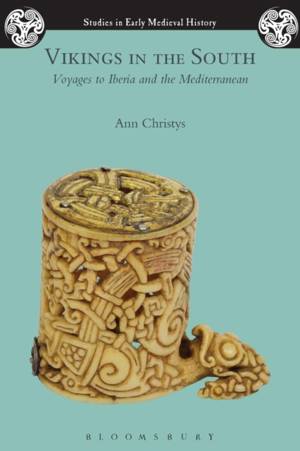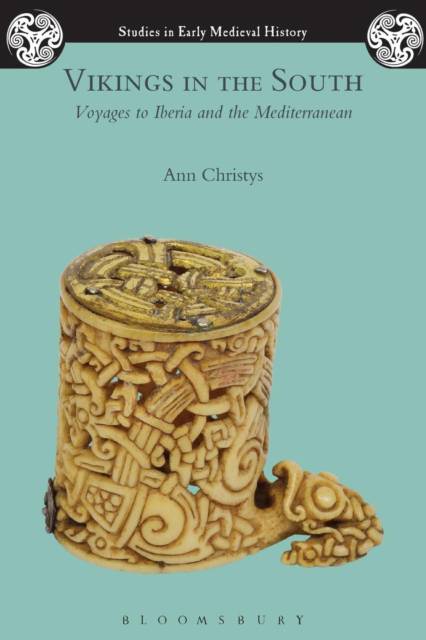
Bedankt voor het vertrouwen het afgelopen jaar! Om jou te bedanken bieden we GRATIS verzending (in België) aan op alles gedurende de hele maand januari.
- Afhalen na 1 uur in een winkel met voorraad
- In januari gratis thuislevering in België
- Ruim aanbod met 7 miljoen producten
Bedankt voor het vertrouwen het afgelopen jaar! Om jou te bedanken bieden we GRATIS verzending (in België) aan op alles gedurende de hele maand januari.
- Afhalen na 1 uur in een winkel met voorraad
- In januari gratis thuislevering in België
- Ruim aanbod met 7 miljoen producten
Zoeken
€ 81,45
+ 162 punten
Uitvoering
Omschrijving
In the ninth century, Vikings carried out raids on the Christian north and Muslim south of the Iberian peninsula (modern Spain and Portugal), going on to attack North Africa, southern Francia and Italy and perhaps sailing as far as Byzantium. A century later, Vikings killed a bishop of Santiago de Compostela and harried the coasts of al-Andalus. Most of the raids after this date were small in scale, but several heroes of the Old Norse sagas were said to have raided in the peninsula.
These Vikings have been only a footnote to the history of the Viking Age. Many stories about their activities survive only in elaborate versions written centuries after the event, and in Arabic. This book reconsiders the Arabic material as part of a dossier that also includes Latin chronicles and charters as well as archaeological and place-name evidence. Arabic authors and their Latin contemporaries remembered Vikings in Iberia in surprisingly similar ways. How they did so sheds light on contemporary responses to Vikings throughout the medieval world.
These Vikings have been only a footnote to the history of the Viking Age. Many stories about their activities survive only in elaborate versions written centuries after the event, and in Arabic. This book reconsiders the Arabic material as part of a dossier that also includes Latin chronicles and charters as well as archaeological and place-name evidence. Arabic authors and their Latin contemporaries remembered Vikings in Iberia in surprisingly similar ways. How they did so sheds light on contemporary responses to Vikings throughout the medieval world.
Specificaties
Betrokkenen
- Auteur(s):
- Uitgeverij:
Inhoud
- Aantal bladzijden:
- 152
- Taal:
- Engels
- Reeks:
Eigenschappen
- Productcode (EAN):
- 9781474213752
- Verschijningsdatum:
- 27/08/2015
- Uitvoering:
- Paperback
- Formaat:
- Trade paperback (VS)
- Afmetingen:
- 152 mm x 231 mm
- Gewicht:
- 226 g

Alleen bij Standaard Boekhandel
+ 162 punten op je klantenkaart van Standaard Boekhandel
Beoordelingen
We publiceren alleen reviews die voldoen aan de voorwaarden voor reviews. Bekijk onze voorwaarden voor reviews.









